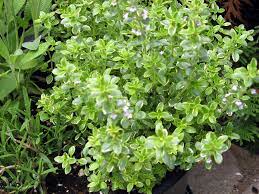
Firstly, introducing Auscrops, a wonderful market vending company bridging farmers and customers together through market vendors. Click here to find out more about lemon thyme as well fruit and vegetable offers.
Lemon Thyme
A highly aromatic herb used in many dishes to add flavor, aroma, and health benefits. This herb has been around for centuries and has been used by many cultures for its various purposes. Not only does lemon thyme have a wonderful flavor, but it also adds nutrition value to the food you are preparing. In this blog post, we will explore all the ways lemon thyme used as well why included in your pantry.
What Is Lemon Thyme?
Lemon thyme is a perennial herb that belongs to the Thymus genus of shrubs and herbs. It grows best in temperate climates with well-drained soil and full sun exposure. The leaves have a lemony scent when crushed, hence its name “lemon thyme.” The plant itself grows up to 20 inches tall with small white or pink flowers blooming on its stems throughout the summer months. It’s an easy-to-care-for plant that requires minimal water once established.
Uses
Lemon thyme has long been used as a cooking ingredient due to its unique flavor profile. The lemony flavor combined with its herbal notes pairs nicely with roasted chicken or fish dishes and makes an excellent addition to soups and stews as well. Also use fresh in salads or as part of an herbal blend for tea infusions or infused oils for baking breads and other dishes. Additionally, the essential oils used topically for aromatherapy purposes or added to homemade cleaning solutions for their natural antibacterial properties.
Health Benefits
In addition to being great tasting, they also offers a variety of health benefits when consumed regularly. Contains high levels of vitamin C, iron, calcium, magnesium, copper and manganese it helps boost immunity while promoting healthy bones and teeth. Also contains thymol which is known for its anti-bacterial properties which help fight off infections from colds and flu viruses. Finally, found to reduce inflammation in the body. Which can help ease joint pain associated with arthritis or other ailments. As well as improve digestion by aiding in proper digestion enzymes production in your gut microbiome!
Conclusion:
An incredibly versatile herb that brings both flavor and nutrition value to your dishes! Whether you’re adding it into recipes or using it topically for its natural healing powers. There are plenty of ways one can benefit from this hardy perennial herb!
Click here to read similar articles.
 Français
Français 











